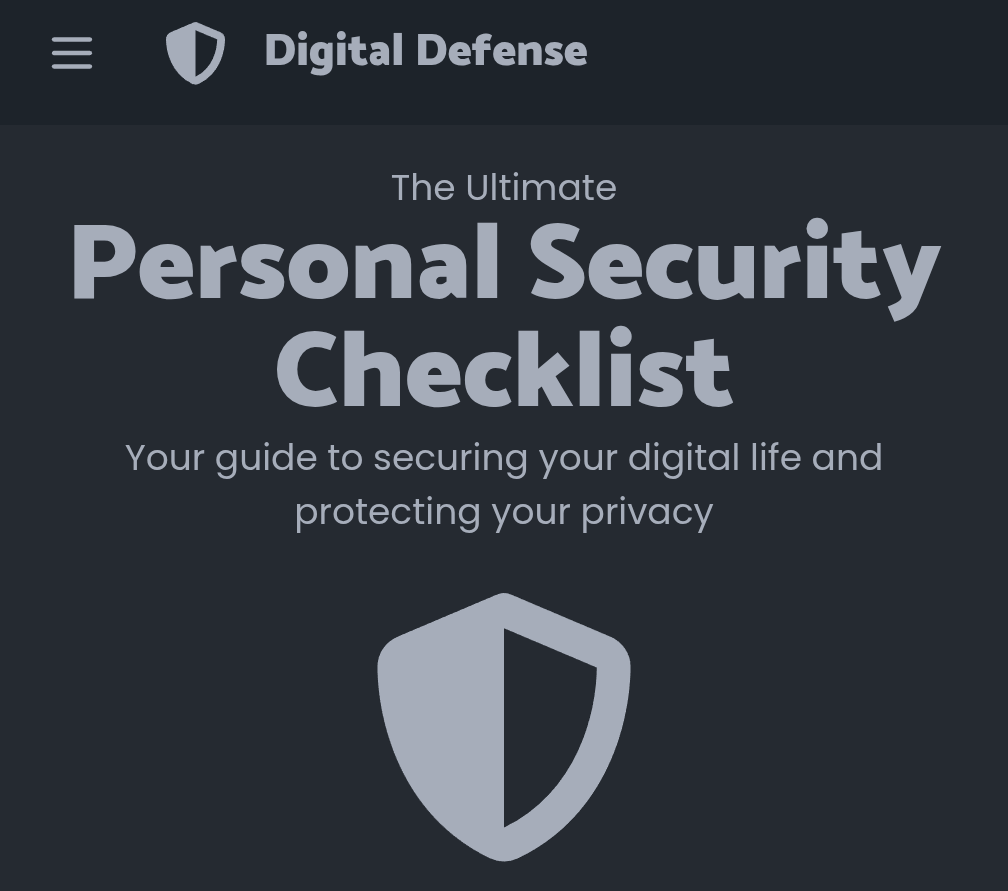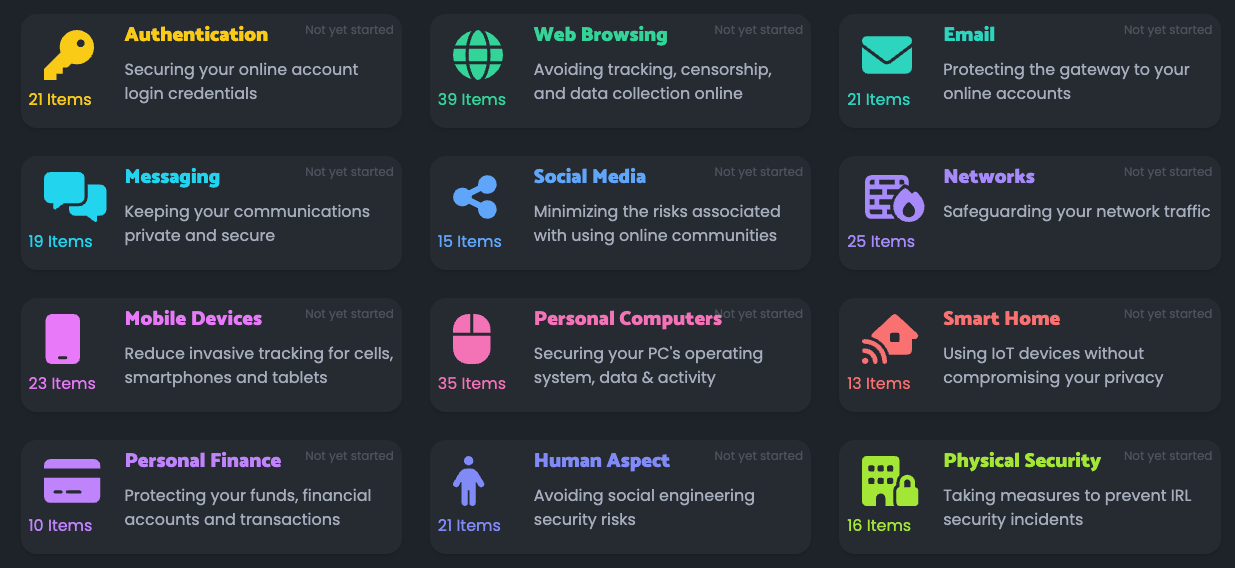Digital Defense: A Guide to Protecting Yourself Online
During my research for my posts, I have found a few gems. Digital-Defense.io is one I want to share with all of my subscribers. It does cover many of the pain points of protecting yourself and your data. It also explains each pain point and offers solutions!
The internet can be a great place full of useful information but always be aware that in the shadows lurk people who want to steal all of your stuff, including your personal information for very nefarious purposes and there is a lucrative black market for that information.
In the image above you can see a checklist from the website and it is broken down into 12 distinct pillars covering various areas of digital life and privacy, you can start anywhere you like, depending on what is most relevant or important to you.
Authentication
One of the most important things you can do is to use strong authentication methods. This means using a combination of passwords, passphrases, and 2-factor Authentication (2FA), also known as Multi-Factor Authentication (MFA).
Web Browsing
When you browse the web, it's important to be careful about the websites you visit. Avoid clicking on links or downloading files from untrusted sources. If it looks too good to be true then it definitely is!
Email
Email is a common way for hackers ( I hate that word so henceforth they will be called twerps) to attack your computer. Be careful about opening emails from unknown sources, and never click on links or attachments in these emails unless you are 100% sure of the sender. If I need to I will open a page on my browser and go directly to the site myself.
Messaging
Messaging apps are also a common target for twerps. Be careful about who you share your personal information with, and use end-to-end encryption when possible, WhatsApp is an example of a messaging app which has this as is Signal.
Social Media
Social media is a great way to connect with friends and family but can also be a source of security risks. Be careful about what you share on social media, and don't accept friend requests from people you don't know. Check out some of my other posts to see how you can lock these down to combat the twerps!
Networks
Your home network is also a potential target for twerps. Make sure to use a strong password for your router (never leave it as the default as I can find any default password using a quick Google search), and keep your software up to date. You should also consider using a virtual private network (VPN) to protect your online privacy.
Mobile Devices
Mobile devices are an extension of most people’s arms these days, but they can be vulnerable to security threats. Make sure to use strong passwords for your mobile devices, and keep your software up to date. You should also consider use using a mobile security app to protect your device from malware.
Personal Computers
Personal computers are frequent targets for cyberattacks. Protecting your computer involves several key steps: using strong, unique passwords, keeping all software updated, and installing and regularly running reputable antivirus software.
Smart Home
While smart home devices offer increased convenience, they also introduce potential security vulnerabilities. To mitigate these risks, it's crucial to prioritize strong, unique passwords for each device and ensure their software is consistently updated. Isolating your smart home devices on a separate network can further enhance security.
Personal Finance
Protecting your financial information online is crucial. Avoid sharing credit card or bank account details with anyone online, and ensure you only use secure websites (look for "https" in the URL and a padlock icon) when shopping or banking.
Human Aspect
Digital security isn't just about technology; it also involves understanding human behaviour. Be mindful of who you share information with, and learn to recognise and avoid social engineering tactics, which are designed to manipulate you into divulging sensitive data or performing risky actions.
Physical Security
Digital security encompasses more than just technical safeguards; it also requires an awareness of human psychology. Practice caution when sharing information, and educate yourself about social engineering techniques. These manipulative tactics are designed to trick you into revealing sensitive data or taking actions that compromise your security.
By completing the different parts of the checklist, you can help protect yourself from cyberattacks and twerps!
















